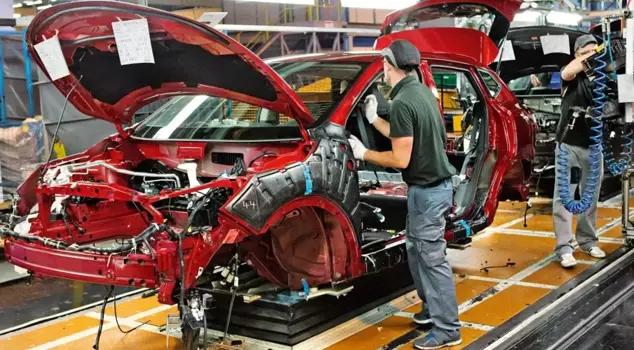
02.10.2025 10:54
Founded in 1933, the Japanese automotive giant Nissan has decided to halve its production capacity due to disruptions in battery supply and competition from low-cost Chinese rivals. It has been reported that the company will close 7 factories and part ways with approximately 20,000 employees as part of this plan.
As one of the pioneers in the electric vehicle sector, Nissan has decided to reshape its global production strategy. Disruptions in the battery supply chain and aggressive pricing policies from Chinese manufacturers have pushed the brand into new searches. The company is expected to place more emphasis on China-based production methods in the upcoming period.
BATTERY CRISIS HITS LEAF
Nissan's flagship model, the LEAF, has experienced significant production losses due to bottlenecks in battery supply. The new generation LEAF, produced at the Tochigi factory in Japan, was manufactured at half capacity during the September-November period. This interruption is considered a critical warning signal in the brand's electric vehicle strategy.
COMPETITORS ON THE CHINESE PATH
After Toyota began production with Chinese-sourced parts at its Thailand facilities, Nissan is also preparing to take a similar step. Many global brands, including Volkswagen, BMW, Audi, Mercedes-Benz, and Ford, are turning to China-based supply solutions to balance costs.
THE FUTURE IS IN NEW GENERATION MODELS
Having launched the first generation LEAF in 2010, Nissan has been one of the pioneers of electric mobility, but in recent years, it has lost market share against affordable Chinese competitors. The company's future will be shaped by its investments in new generation electric vehicles and the steps it takes in battery supply.